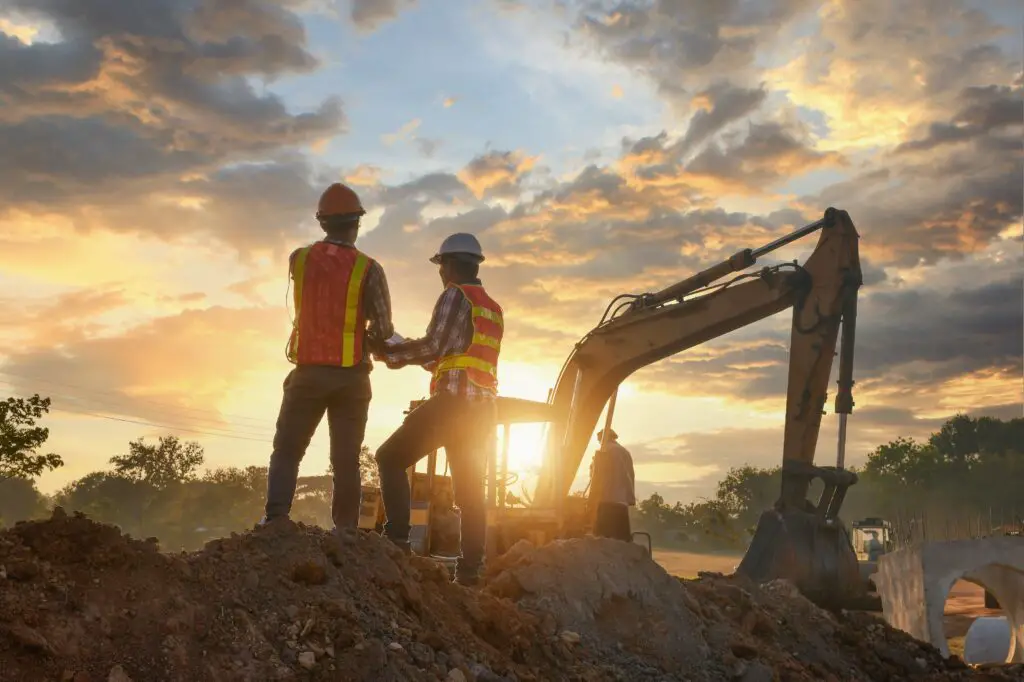Defense infrastructure encompasses all built environments that support a nation’s defense capabilities, from military bases and installations to transportation networks and secure communication systems. These structures serve a broader function beyond merely providing physical spaces where military personnel live or work. They are the backbone of preparing, sustaining, and enabling military activities during both peacetime and periods of conflict.
Civil Engineering In Defense Infrastructure
Civil engineering, with its specializations in mechanics, hydrology, geotechnical, and structural engineering, plays a crucial role in the creation of defense infrastructure. It provides nuanced insights into material behavior and environmental interactions, crucial for building robust structures that can withstand the rigorous conditions of defense operations.
Mechanics assist in predicting structural reactions under varying conditions, while hydrology is key for managing water flow in different environments. Geotechnical engineering contributes to a safe understanding of soil and rock behavior for stable constructions, and structural engineering is indispensable for designing resilient structures that can endure external pressures, ranging from natural disasters to potential attacks.

- Designing And Constructing Military Bases
When designing and constructing a military shelter system, there are several considerations that experts in the field must account for. The layout of a military base must provide strategic advantages in potential conflict scenarios and support daily logistical needs. This involves the optimal placement of accommodation buildings, storage facilities, airstrips, and roadways for efficient operation.
Further, military bases must be resilient to adverse weather conditions and potential attacks. To achieve this resilience, experts must possess in-depth knowledge of material properties and structural dynamics, alongside a keen understanding of local environmental conditions.
- Development Of Military Transportation Networks
Developing military transportation networks is another area where the expertise of civil engineers is invaluable. Military operations often require the transport of heavy machinery, troops, and supplies over vast distances. Therefore, roads, bridges, airports, and ports must be designed to withstand heavy use, even under the harshest conditions.
To achieve this, experts utilize a combination of material science, structural design, and geotechnical knowledge. Roads must be built with materials that can handle the weight and frequency of heavy military vehicles. Bridges must be engineered to bear substantial loads, while airports and ports must be strategically placed and robustly built to accommodate large military aircraft and naval vessels.
- Construction Of Protective Structures
Protective structures, such as bunkers and blast walls, serve to safeguard military personnel and equipment from enemy attacks. The construction of these structures requires a comprehensive understanding of material science, structural dynamics, and the impacts of explosive forces.
For instance, bunkers must be constructed with materials that can resist the impact of high explosives. This requires careful material selection, understanding the mechanics of shock waves, and designing the structure to minimize damage from an explosion. Similarly, blast walls must be designed to divert the impact of an explosion, protecting critical structures and personnel in the vicinity.
- Natural Disaster Mitigation And Response
Defense infrastructures serve functions beyond active conflict scenarios. They are also imperative in disaster relief and humanitarian aid missions. In this context, engineers ensure that these infrastructures can swiftly adapt to these needs when required. For example, an airstrip may need to transition quickly to accommodate aid flights bringing in essential supplies.
Civil engineers play a crucial role in disaster preparedness, aiding defense forces in developing infrastructure resilient to potential disasters such as flooding, earthquakes, landslides, and storms. This may include designing buildings that can withstand seismic events, creating effective drainage systems to prevent flooding, or establishing secure communication lines that can endure extreme weather conditions.
In the aftermath of disasters, these professionals also play a significant role in recovery efforts. They aid in the restoration of essential services and the rebuilding of infrastructure, from clearing roads to reconstructing buildings, to ensuring the safety of dams and other critical structures.
- Building And Maintaining Communication Networks
In the realm of modern warfare, with its increasing reliance on data, digital technologies, and real-time coordination, secure and reliable communication networks have become vital. Civil engineers contribute to the design and construction of infrastructure like data centers, secure communication lines, and satellite facilities.
Such facilities often require precise environmental control, robust physical security, and resilience to natural and man-made disasters. Civil engineers’ expertise ensures that these infrastructures are built to exacting standards. Moreover, they participate in the ongoing maintenance of these facilities, ensuring they are always at peak operational efficiency and continuously updated to handle evolving requirements and threats.
Environmental Sustainability In Defense Infrastructure
In a world where the emphasis on sustainable development continues to grow, environmental considerations have become a key aspect of civil engineering practices. Defense infrastructures must be designed and constructed to minimize environmental impact, maximize energy efficiency, and comply with relevant environmental laws and regulations.
In many cases, defense installations exist within or near sensitive ecosystems. The construction and operation of these installations can impact local water quality, soil integrity, vegetation, and wildlife. To mitigate such impacts, civil engineers are responsible for considering these potential effects when planning and building a military base or road network.
Strategies may include using renewable energy sources, implementing waste management systems, ensuring efficient water usage, and conducting regular environmental impact assessments. These practices not only protect the environment but also enhance the long-term sustainability and effectiveness of defense infrastructures.
Final Thoughts
The role of civil engineering in defense infrastructures is both extensive and vital. From designing and constructing military installations, to ensuring environmental sustainability, to disaster preparedness and recovery, the expertise of these professionals is indispensable in enhancing a nation’s defense capabilities. It is not an exaggeration to state that the strength of a nation’s defense infrastructure often mirrors the prowess of its civil engineering sector.